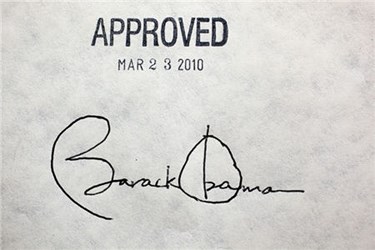Supreme Court Takes On Obamacare Case

By Christine Kern, contributing writer

The decision to consider the new challenge to the Affordable Care Act could put the law in danger.
The Supreme Court announced it would re-examine the constitutionality of Affordable Care Act subsidies, a decision that came as somewhat a surprise given it came without waiting for a split among federal appeals courts.
The Court will revisit King v. Burwell, a case in which the Fourth Circuit court upheld an IRS rule that extends the distribution of health insurance subsidies to states served by the federal insurance marketplace.
The underlying issue in King v. Burwell is whether or not federal subsidies may be used to purchase insurance on exchanges that are not state-run. At its heart is a sentence permitting taxpayer subsidies for customers buying policies from health-care exchanges “established by the state.”
According to Business Insider, this case has the potential to affect subsidies for more than five million low-income Americans. According to one analysis, if the subsidies are deemed unconstitutional, premiums could jump by 76 percent for the people who currently receive subsidies.
Health IT Outcomes has reported on the ongoing legal battles, including a January ruling from U.S. District Judge Paul L. Friedman who said that Federal subsidies from Affordable Care Act may be applied to state or federal exchanges; a federal judge in Oklahoma who struck down the subsidies; and a July 2-1 decision in Halbig v. Burwell that invalidated federal insurance subsidies for nearly seven million Americans.
As CNBC explains, plaintiffs argue that the law bars subsidies for customers in the 36 states that relied on a provision of the law allowing the federal government to set up the exchange for their residents in lieu of creating their own state exchanges. According to the Obama administration, “established by the state” is a legal boilerplate that encompasses federally operated exchanges as well.
Basically, the challenge is not about intent: lawmakers clearly intended that all exchange customers would receive subsidies, since subsidies are indispensable to making the entire system work, and the Congressional Budget Office analyses of the law's cost and impact all incorporated this assumption.
